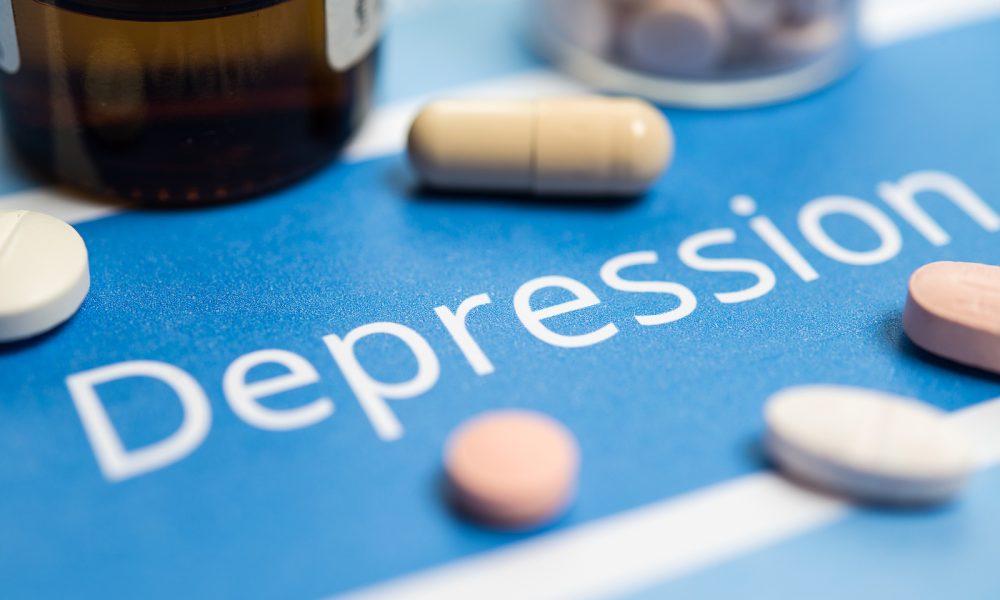anxiety, Anxiety Center Article, CBD, depression, Depression Article Center, Featured, protren probiotics, stress, thc, United Patients Group
Exploring the Relationship between Marijuana and Depression
Marijuana, also popularly known as cannabis or weed, has been used for medicinal purposes for centuries. Cannabis contains more than a hundred plus compounds known as cannabinoids, the most well-known being tetrahydrocannabinol (THC) and cannabidiol (CBD).
THC is the psychoactive compound responsible for producing the “high” due to marijuana use, while CBD is non-psychoactive and has been found to have potential therapeutic benefits. One of the potential benefits of cannabis is its ability to treat depression.
This article will explore the relationship between marijuana and depression, including the potential benefits and risks of using cannabis to treat depression.
Understanding Depression
Depression is a prevalent mental health disorder that affects millions of people across the globe. It is characterized by hopelessness, sadness, and a lack of interest in once-enjoyable activities.
Depression can also cause physical symptoms, such as fatigue, changes in appetite, and sleep disturbances. A variety of factors, such as genetics, life events, and brain chemistry, can cause depression.
Traditional Treatments for Depression
There are several traditional treatments for depression, including therapy, medication, and lifestyle changes. Therapy, such as cognitive-behavioral therapy (CBT), significantly helps patients identify negative thought patterns and develop healthy coping skills.
Medications, such as antidepressants, can help regulate brain chemistry and improve mood, but may have an impact on gut health. Lifestyle changes, such as regular exercise and a balanced diet, can also improve symptoms of depression.
The Potential Benefits of Cannabis for Depression
Cannabis has been found to have potential therapeutic benefits for depression. THC, the psychoactive compound in cannabis, has been found to have antidepressant effects in animal studies.
One study found that THC increased serotonin levels in rats, which is a neurotransmitter that regulates mood. CBD, the non-psychoactive compound in cannabis, has also been found to have potential antidepressant effects. It was found that CBD increased serotonin levels in rats and produced rapid and sustained antidepressant-like results.
In addition to its potential antidepressant effects, cannabis has also been found to have possible anti-anxiety effects. Anxiety is often comorbid with depression, and individuals with depression may also experience anxiety symptoms. A study found that CBD reduced stress in individuals with social anxiety disorder. Another found that THC reduced anxiety in individuals with generalized anxiety disorder.
Cannabis may also be a viable treatment option for individuals who do not respond well to traditional treatments for depression. Antidepressants typically take several weeks to start working, and some individuals may not respond well to these medications. Cannabis may be a faster-acting treatment option for depression, with some individuals reporting an improvement in mood shortly after using cannabis.
The Risks of Cannabis for Depression
While cannabis has potential therapeutic benefits for depression, it is crucial to consider the potential risks. Cannabis use can have adverse effects on mental health, particularly in those predisposed to mental health disorders.
Cannabis use can also have adverse effects on cognitive function. THC can impair memory, attention, and decision-making, particularly in individuals who use cannabis frequently or in high doses. Cannabis use can also impair driving ability and increase the risk of accidents.
Conclusion
Marijuana has potential therapeutic benefits for depression, including its possible antidepressant and anti-anxiety effects. However, it is vital to consider the potential risks of cannabis use, particularly in individuals who are predisposed to mental health disorders.
Cannabis should ideally not be used as a first-line treatment for depression, and individuals should consult a healthcare professional before using cannabis to treat depression. More research is needed to fully understand the relationship between marijuana and depression, including the long-term effects of cannabis use on mental health.
To learn more about medical cannabis for depression, check out United Patients Group. We are the leading source for patient information on medical marijuana featuring medical insights, reliable recommendations from industry experts, and lab-tested product reviews. Book a consultation now.
The post Exploring the Relationship between Marijuana and Depression appeared first on United Patients Group.
The post Exploring the Relationship between Marijuana and Depression appeared first on The Art Of MaryJane Media.
Source link


